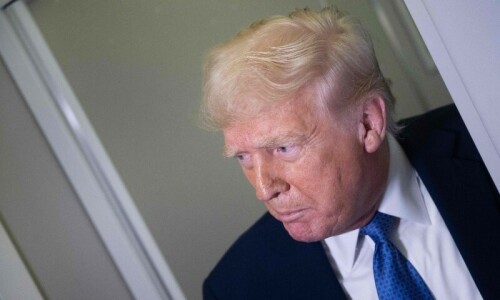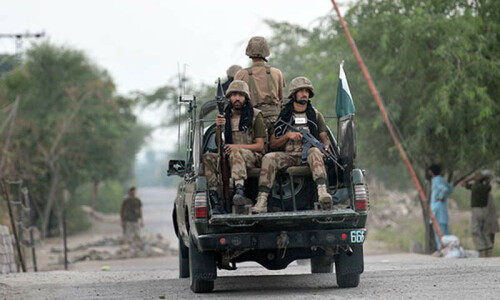DURING a recent Islamabad High Court hearing, revelations about the ease of mobile phone hacking in Pakistan have brought into focus the egregious manner in which citizens’ privacy rights are violated. The PTA chairman told the court a person’s phone could be compromised “within a minute”, laying bare a troubling reality: the sanctity of our personal communication is under threat, and the existing legal framework is insufficient to protect it. The Telegraph Act, 1885, and the Pakistan Telecommunication (Reorganisation) Act, 1996, grant broad surveillance powers to the state. The Investigation for Fair Trial Act, 2013, further allows intelligence and LEAs to intercept communications with authorisation from the federal government and a warrant from a high court judge. These same laws — in addition to Article 14 of the Constitution — are designed to safeguard privacy, but are regularly flouted, revealing a gap between legislative intent and enforcement. The case brought to light by the IHC, involving allegations of illegal phone tapping, is emblematic of a broader issue: the unchecked surveillance regime that operates in the shadows, beyond the reach of accountability mechanisms. Not only does this regime work against the spirit of existing laws, it also erodes the principles of democracy and justice.
To counter such brazen surveillance, several things must occur. First, there must be a stringent enforcement of existing laws, with clear mechanisms for accountability. Any interception of communications should require judicial oversight, with warrants issued only upon demonstration of a compelling national security interest. Further, there must be a paper trail, documenting the authorisation and execution of surveillance activities. While this need not be public, there should be an audit trail accessible to oversight bodies. Additionally, the legal framework must be updated. The vague and broad powers currently afforded to the state should be narrowed, specifying the circumstances under which surveillance is permissible and establishing a transparent process for its authorisation and execution. This includes revising laws like the Telegraph Act and the Pakistan Telecommunication (Reorganisation) Act to align with contemporary standards of privacy and human rights. Finally, an independent oversight body should monitor surveillance, handle complaints, and report to parliament, balancing security with accountability. Safeguarding privacy rights necessitates legal and institutional reforms to prevent rights infringements and reinforce the rule of law.
Published in Dawn, March 16th, 2024












































